Organizations, universities, and archaeological firms work together to promote the conservation of cultural resources in our community and beyond. Are you interested in volunteering at an archaeological excavation, attending a lecture, or starting a career in archaeology? Read below to find out how you can get involved in the #protectorsofthepast community!
Diving with a Purpose
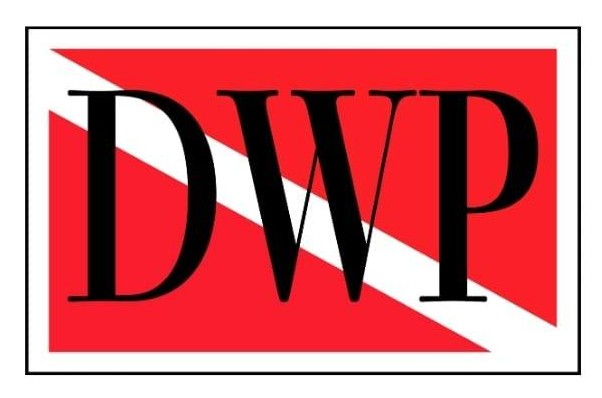
Diving With a Purpose (DWP) is a volunteer underwater archaeology program that started with members of the National Association of Black Scuba Divers (NABS) and the National Park Service (NPS) in Biscayne National Park. Biscayne National Park is the largest marine park in the National Parks System and has over 110 archaeological sites, approximately 43 of which are intact shipwrecks, that tell compelling stories of the nation’s rich maritime cultural heritage.
DWP trains experienced divers, including youth, to become underwater archaeology advocates. Through the program, divers are able to assist in the historical documentation and preservation of artifacts and wreck sites. The program helps to perform a congressionally-mandated condition assessment of archaeological sites within the Park’s boundaries. DWP performs extensive underwater archaeological documentation of these shipwrecks, surveys their condition and develops detailed maps of the wreck sites. The program also attempts to interpret and understand the historical context in which the ships existed.
DWP believes it is important to document these historical sites while they still exist. The sites are subject to an ever-changing environment both man-made and natural. Sites have been looted for their valuable artifacts and damaged by storms and time on the ocean floor. The shipwreck data collected serves as a vital educational resource for local communities that will tell the story of these vessels and the role they played in the nation’s maritime heritage. Documenting these sites allows a rich history to be shared for generations to come.
Rebecca Gilliard
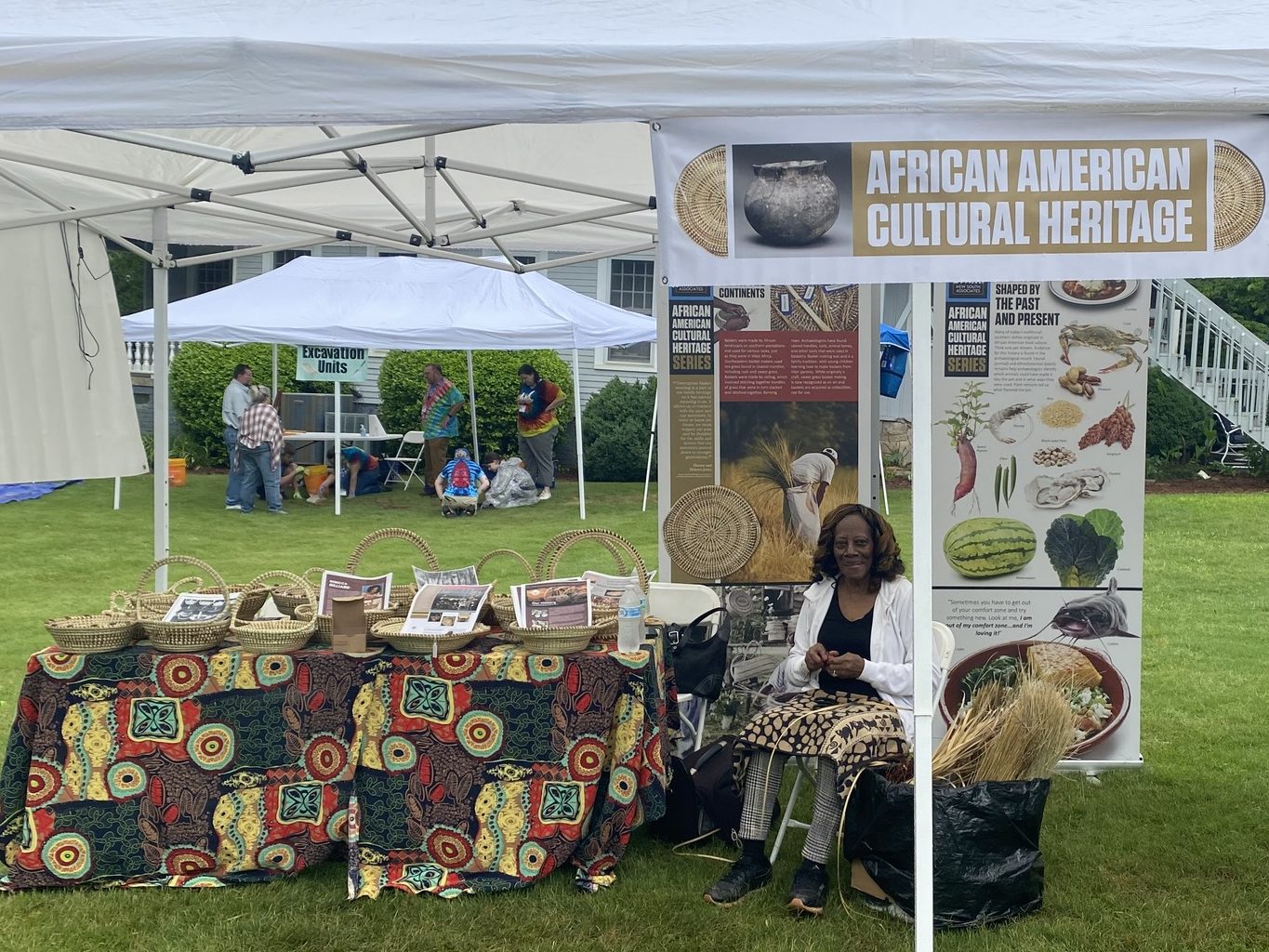
Rebecca Gilliard is a Sweet grass Basket Makers, from Charleston/Mt.Pleasant South Carolina.
Ms. Gilliard learned how to make baskets form her aunt when she was only 10 years old, but she didn’t pick it back up until she was in her 20s. Since then, she has made a business of teaching people how important this heritage craft is to preserve. She taught all three of her daughters to ensure it continues to get passed down from one generation to the next. Her baskets are made from organic materials sourced in Charleston; sweetgrass, pine needles, palm leaf & bulrush.
She will demonstrate the art of sweetgrass basket weaving that has been passed down from generation to generation. Each of these unique baskets is both functional and beautiful.
Mama Koku’s Storytellin’
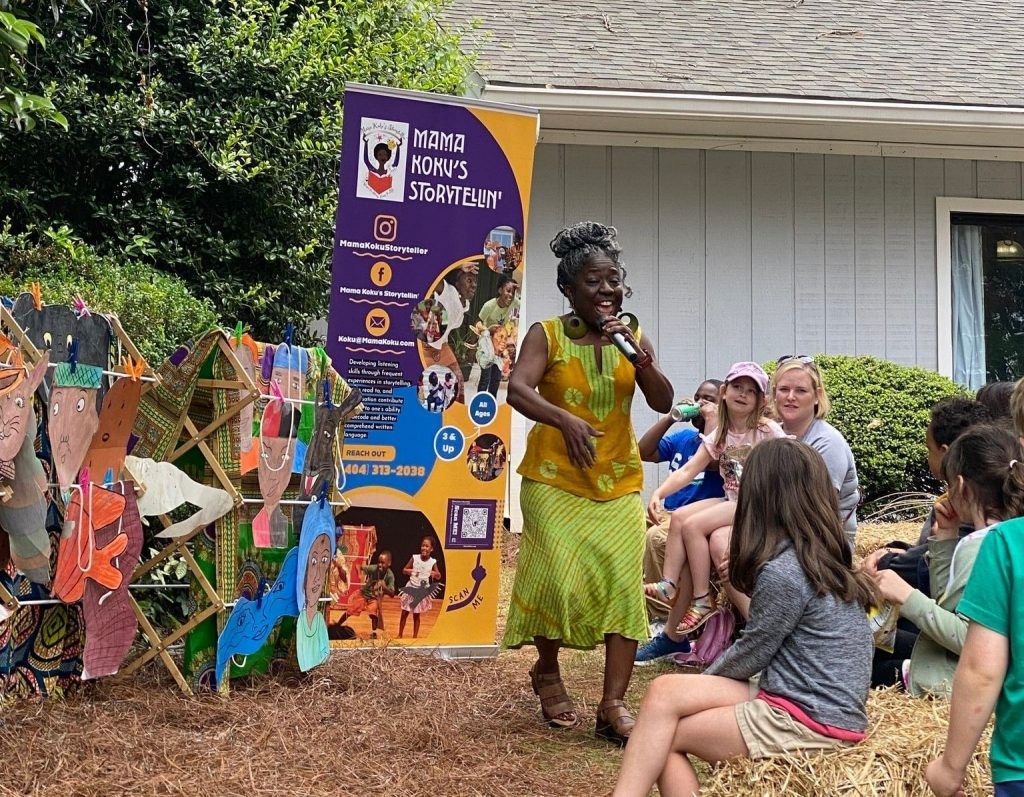
Donna Kokumo Buie, (aka. Mama Koku), is a Master Storyteller, children’s writer, and educator, who has dedicated her life to the art of storytelling. She’s a member of esteemed organizations like the Kuumba Storytellers of Georgia, The National Association of Black Storytellers, and the Southern Order of Storytellers. She is the author of two Children’s Picture Books, Zuri the Fairy, Illustrated by O Makeba Waddy. and Little Black Fairy, Illustrated by Kevin Bell.
Mama Koku is known throughout metro Atlanta for her extreme interactive storytelling style. She rarely performs alone as students and audience members join her on stage for an energized, improvised “story-doing” experience! Koku, graduated with honors from North Carolina Central University majoring in Theater with concentrations in Performance and Education. Early in her career, she taught in the classroom as a high school theatre teacher and was a Pre-K lead teacher for seven years. As a Teaching Artist, Storyteller and Children’s Writer of more than 25 years. Koku’s magnetic style once earned her the title of Official Teller for the National Black Arts Festival’s Education Village and The Coretta Scott King Book Awards Book Fair. She was also a Rambler for the Wrens Nest House Museum for seven years.
Come and be enchanted by her incredible tales that will transport you to another time and place.
The Society for Georgia Archaeology
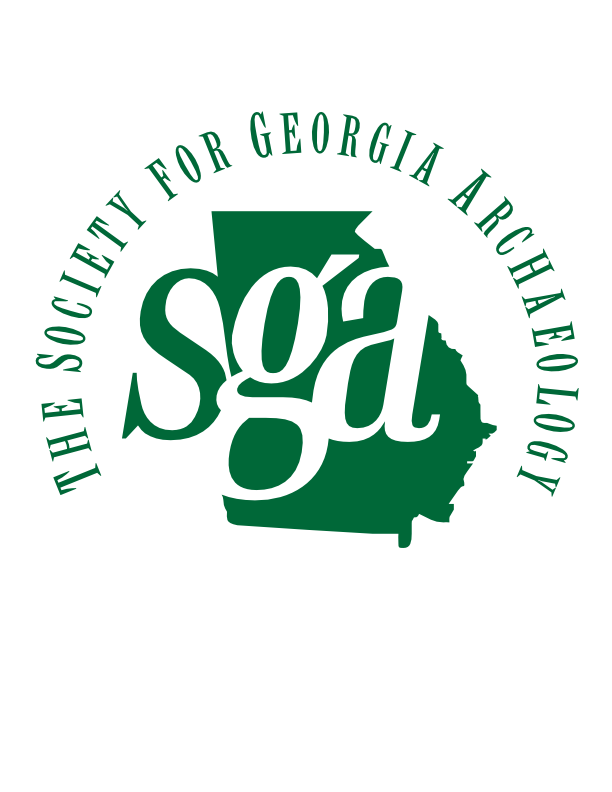
The Society for Georgia Archaeology (SGA), initiated in the 1930s and reorganized in 1973, is a 501(c)3 (non-profit) organization; its members are avocational and professional archaeologists. The SGA has always sought to unite all persons interested in Georgia archaeology; the SGA actively works as an organization to identify, study, interpret, and preserve Georgia’s rich historic and prehistoric archaeological heritage. SGA members work with private landowners, school groups, a historic house museum, and individuals to raise the public’s awareness of archeological sites and resources in planning, development and management. Two ways SGA members accomplish this task is through the development of programs that help promote Archaeology Month, held each spring, and by participating in Chapter activities. Chapters are sub organizations located around the state that meet more frequently than the SGA and conduct activities tailored to their own membership. You can join the SGA by visiting https://the-society-for-georgia-archaeology.square.site/.
Greater Atlanta Archaeological Society (GAAS)
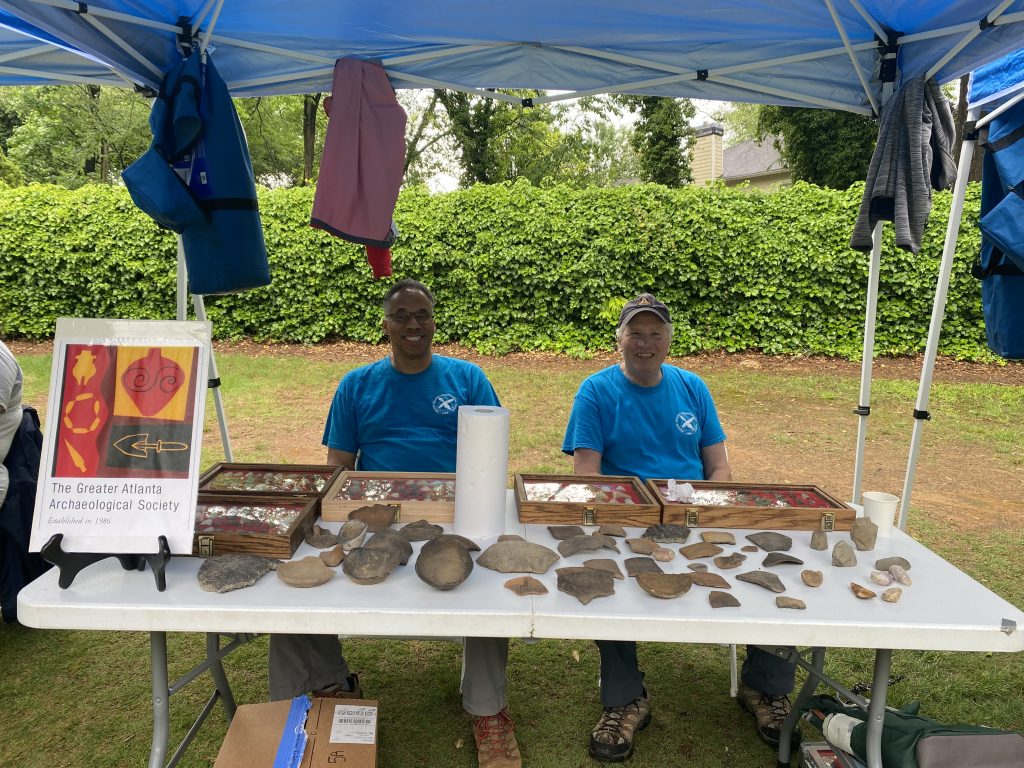
The Greater Atlanta Archaeology Society (GAAS) is one of many chapters around the state that belong to the Society of Georgia Archaeology. Each month we meet at the Fernbank Museum of Natural History to listen to speakers, and for students, amateurs, professionals, and those interested in history to mix and mingle. In the summertime, there are opportunities for members to participate in ongoing archaeological excavations. Meetings are open to the public. An individual membership is $20, a family is $25, and students are $10. Visit our Facebook page for more information at https://www.facebook.com/ATLArchaeology/.
University of West Georgia – Antonio J. Waring Archaeological Laboratory
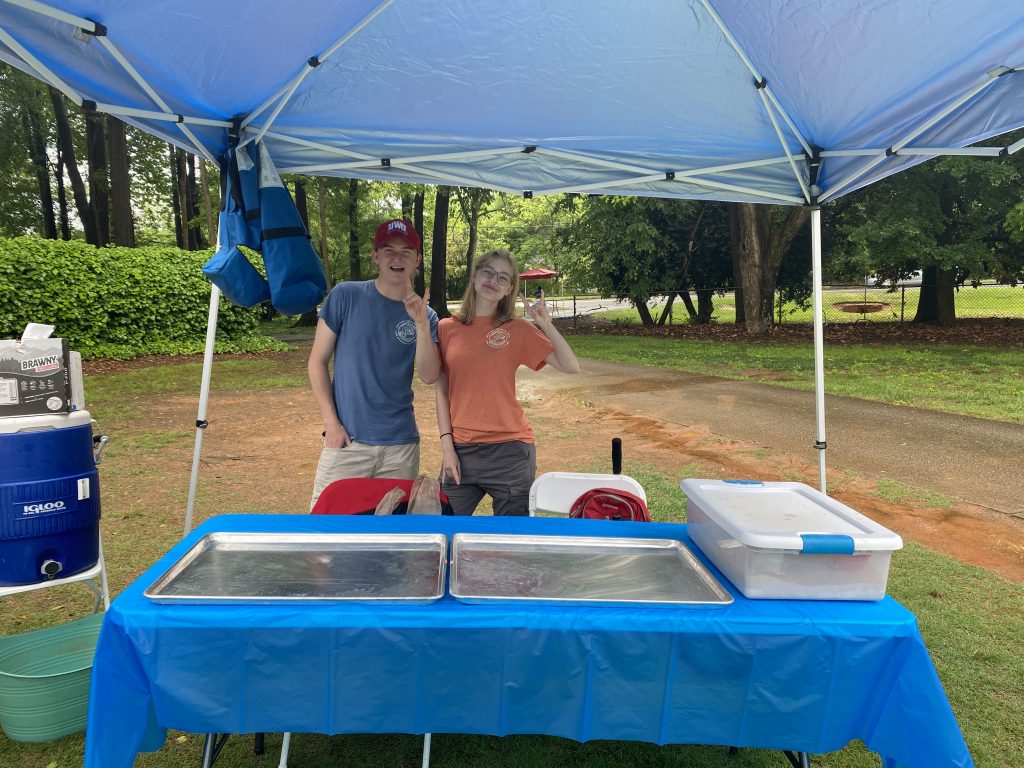
The University of West Georgia (UWG) can help you on your journey to becoming an archaeologist! At UWG, you can earn a degree in Anthropology (archaeology is one of four subfields of American Anthropology). UWG also has an incredible archaeological laboratory where you can get involved! Primarily a research facility, the Waring lab is dedicated to the scholarly pursuit of knowledge about past cultures in Georgia and the greater Southeast region. Thousands of prehistoric and historic archaeological collections are held in trust by the Waring Lab, which exceeds federally required curation standards. To learn more about the UWG Anthropology Department, visit UWG | Anthropology (westga.edu)
Kennesaw State University
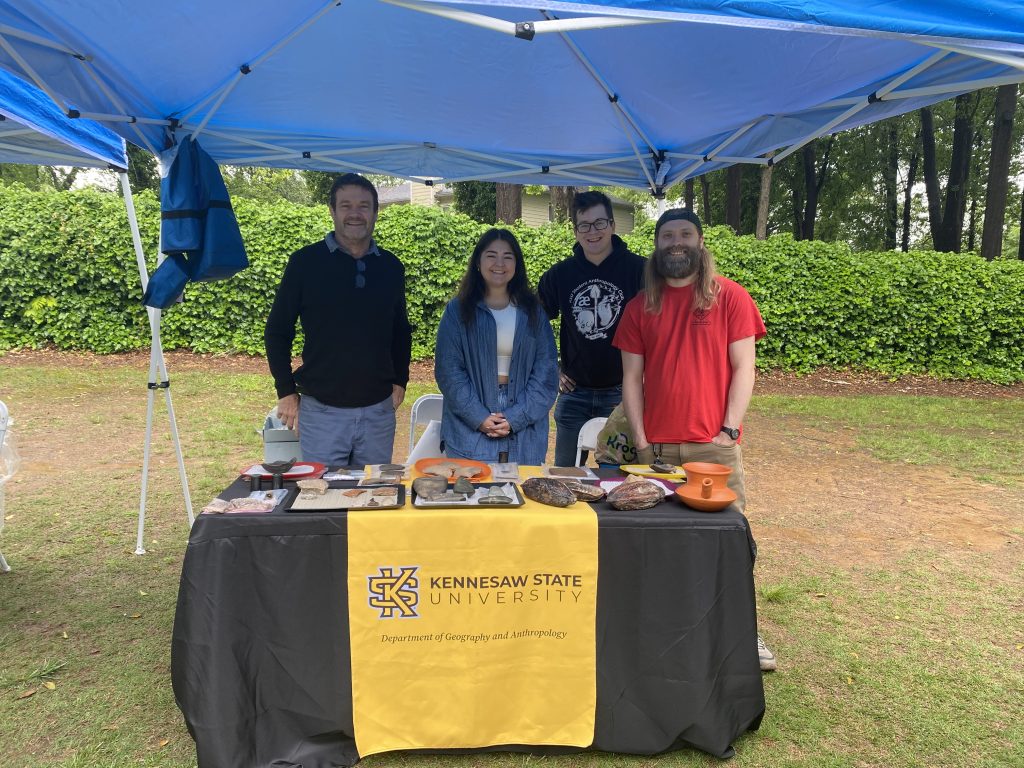
At Kennesaw State University (KSU), you can study to become an archaeologist by earning a degree in Anthropology! They offer a Bachelor of Science degree with a major in Anthropology to provide students with a solid foundation of disciplinary knowledge that prepares them for diverse professional employment opportunities and graduate school. The Anthropology major encompasses a broad education about human biological, behavioral, and cultural stability and change and the comparative study of contemporary societies and cultures around the planet. Majors will take courses in cultural theory and practice, physical anthropology, and archaeology, in addition to foundational courses in the field of anthropology. You can learn more about the program at https://chss.kennesaw.edu/geoanth/index.php.
University of Georgia
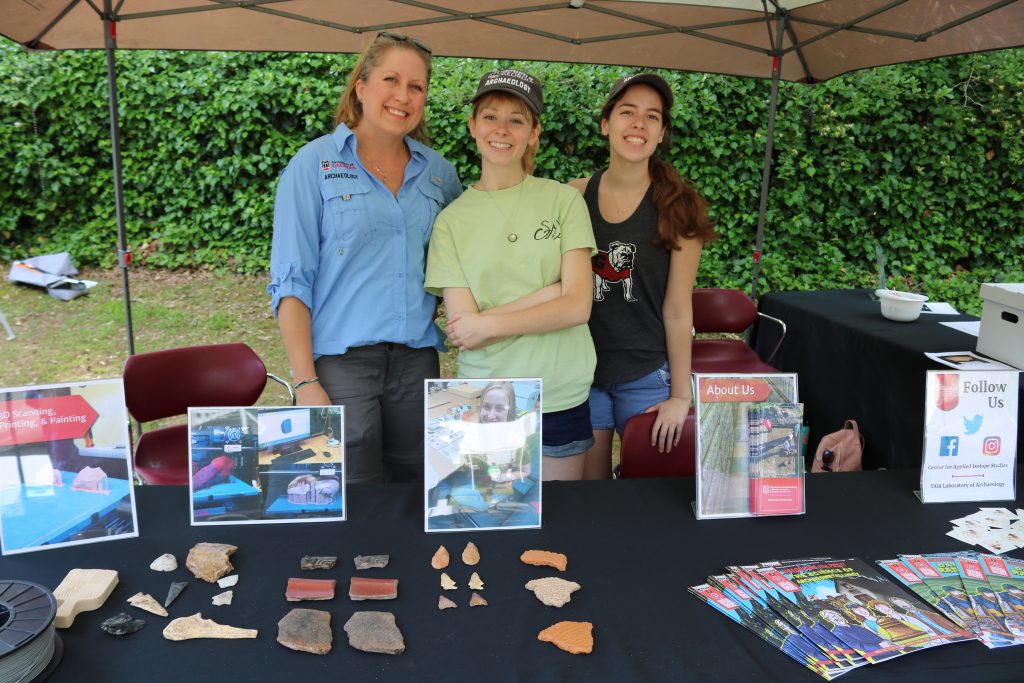
Established in the fall of 1947, the Laboratory of Archaeology at the University of Georgia (UGA) is one of the largest archaeological research and collections facilities in Georgia. Their mission includes preserving and curating qualified archaeological collections and records, facilitating research for professionals and training students in archaeology, and providing service to the state of Georgia. The Laboratory employs UGA students and interns throughout the semester providing them with hands-on training in archaeological curation.
The Department of Anthropology at UGA emphasizes an environmental and ecological approach to all anthropological studies, including archaeology. A number of archaeology courses at the undergraduate and graduate-level courses are offered in the department and include a wide range of topics, such as the archaeology of warfare, Cultural Resource Management, and archaeological theory. The Laboratory of Archaeology also provides a classroom setting for practicums concerning material culture and curation management. You can visit the UGA Department of Anthropology website at http://anthropology.uga.edu.
The Laboratory of Archaeology is a resource to UGA as well as to the state and provides an exceptional environment to conduct archaeological research. Behind-the-scene tours and school group visits are available but must be scheduled in advance. Follow them on Facebook, Twitter, and Instagram for upcoming volunteer opportunities, research and Laboratory updates, and more. You can visit the UGA Laboratory website at Laboratory of Archaeology | Anthropology (uga.edu) .
Georgia State University
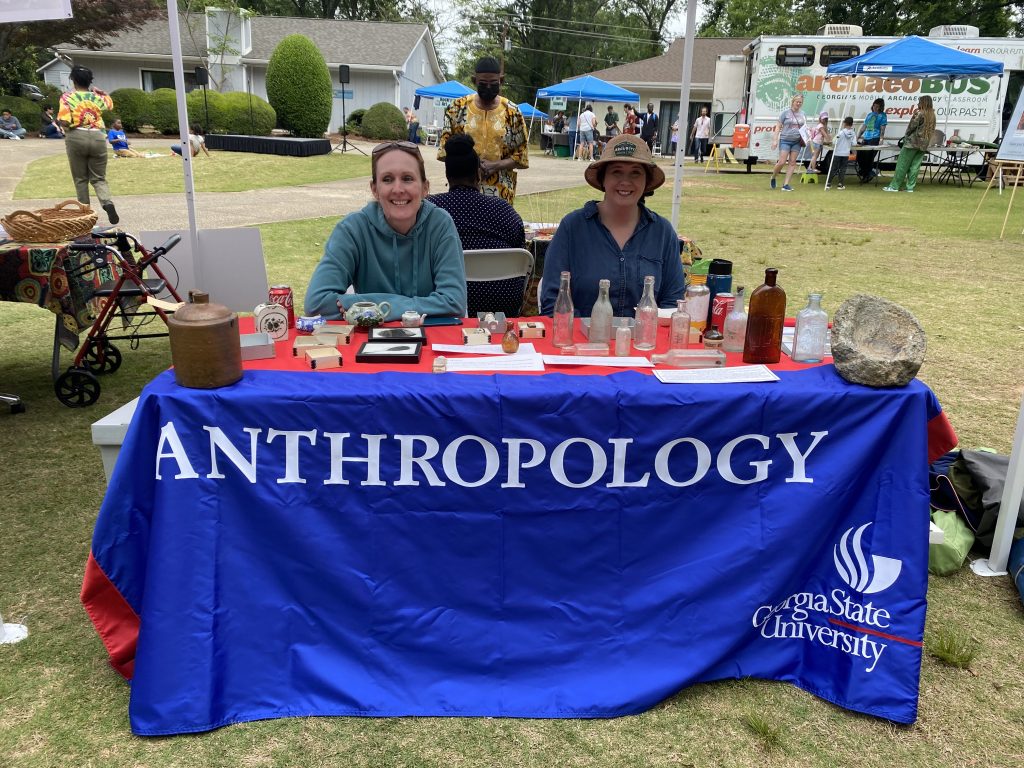
The Department of Anthropology at Georgia State University offers undergraduate and graduate (Master’s level) courses in archaeology and bioarchaeology. At the undergraduate level students are exposed to all of the sub-fields of anthropology, biological anthropology, archaeology, linguistic anthropology, and cultural anthropology. We do our best to create signature experiences for students through internships, study abroad, or field schools. At the graduate level, we have a two-year Master of Arts program. Students can pursue an applied route that results in a capstone paper or a thesis route.
At the graduate level, we offer a museum concentration. This concentration is focused on the anthropological examination of curation, exhibition, and museum practice from a comparative and global prospective. Like much of the work in our department, this has an applied perspective focusing on the relationship between museums and their stakeholder communities. The Department also has an archaeology lab that houses the MARTA archaeological collection, a collection of over 500 banker-boxes holding artifacts associated with Atlanta’s history.
Visit https://news.gsu.edu/magazine/summer2018/treasures-of-terminus for an overview on the collection and the work we are doing with it. There are opportunities for volunteer work at the lab. We historically handle this through the Greater Atlanta Archaeological Society (GAAS). Volunteers help us re-bag and re-label artifacts and recently have been helping create a digital archive of a large collection of projectile points. If you are interested in volunteering, please contact Jeffrey Glover at jglover@gsu.edu. For general information about the department, please visit https://anthropology.gsu.edu/.
Georgia Department of Transportation (GDOT)
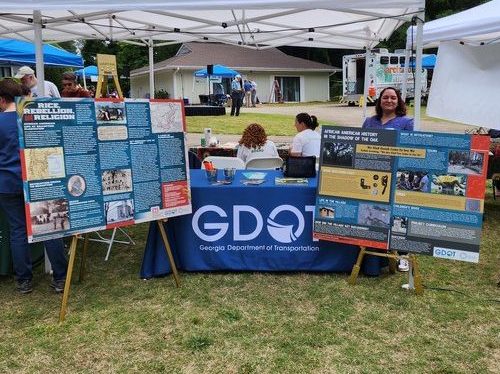
While the primary goal of GDOT is to provide a “safe, efficient and sustainable transportation system,” its mission statement commits the agency to “environmental sensitivity.” The consideration of historic and archaeological resources during routine project development is part of this environmental sensitivity. Historic and archaeological resources, often referred to as cultural resources, also factor into special GDOT activities through the Transportation Enhancement Activity program and the Scenic Byways program. The GDOT Archaeology Unit provides the public with educational opportunities that promote cultural awareness and respect for Georgia’s shared cultural heritage. GDOT Archaeologists are architects of progressive Public Education/Outreach initiatives that reach Georgians of all ages and interests. Through partnership with the Georgia Department of Education (GDOE), GDOT archaeologists have created educational resources and programs that effectively engage children in archaeology and Georgia’s prehistory.
Georgia Power Company
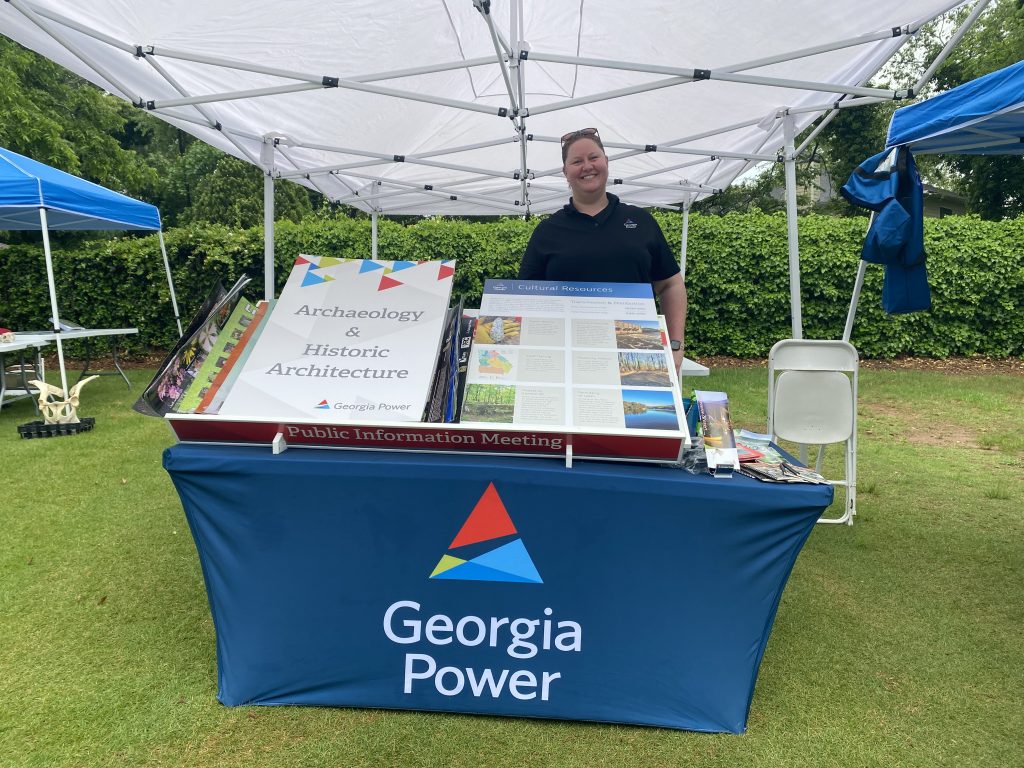
Georgia Power Company is always working to provide 2.7 million customers with reliable, clean, safe and affordable power. Their mission is to elevate their communities as well as protecting the environment, and growing a Georgia that works for all Georgians – today and for generations to come.
Historic Preservation Division (HPD)
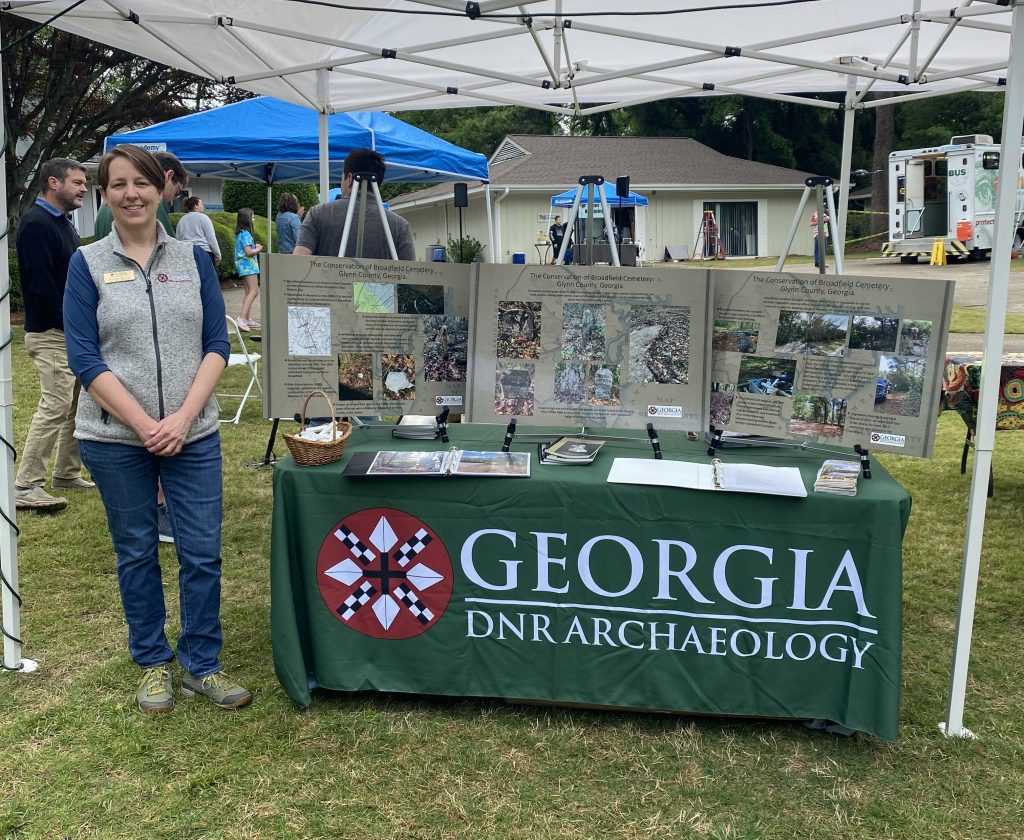
The Historic Preservation Division (HPD) is Georgia’s state historic preservation office, or SHPO. Every state has a SHPO, as established by the National Historic Preservation Act of 1966. HPD has several key functions as part of the national historic preservation program. First, through the Section 106 compliance program (named for the section of the federal implementing regulations of the NHPA), HPD functions as a watchdog over federal agencies doing business in the state, helping to insure that they respect our most important historic resources. Second, we administer various economic development programs that leverage private capital to encourage business growth, especially in our many smaller towns and communities. Finally, through programs like the National Register of Historic Places, Certified Local Governments, and others, we work with partners both inside and outside state government to encourage regional and local planning, neighborhood conservation, downtown revitalization, heritage tourism and archaeological site protection. The end of the 2020 legislative session marked the transfer of the Historic Preservation Division (HPD) from the Department of Natural Resources to the Department of Community Affairs (DCA). The team responsible for preserving Georgia’s legacy is now housed in the DCA.
Gwinnett Archaeology Research Society (GARS)
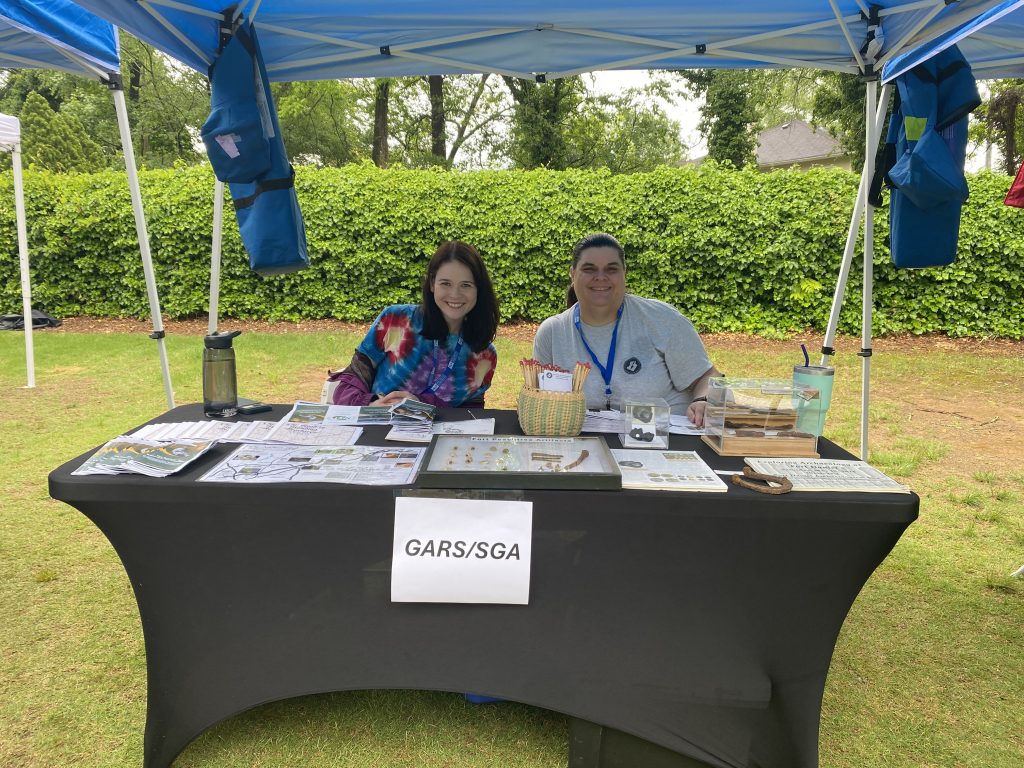
Gwinnett Archaeological Research Society (GARS), a local chapter of the Society of Georgia Archaeology, promotes research into and protection of archaeological sites and artifacts – primarily in Gwinnett County; encourages interest in and activities consistent with these goals; and documents Gwinnett history as it relates to historic and prehistoric sites. The GARS mission is to educate the public about local archaeological resources and advocate for the preservation of those resources. Visit the GARS website at http://home.thegars.org/ and follow us on Instagram @gwinnettarchaeology!
Stone Mountain-Sue Kellogg Library
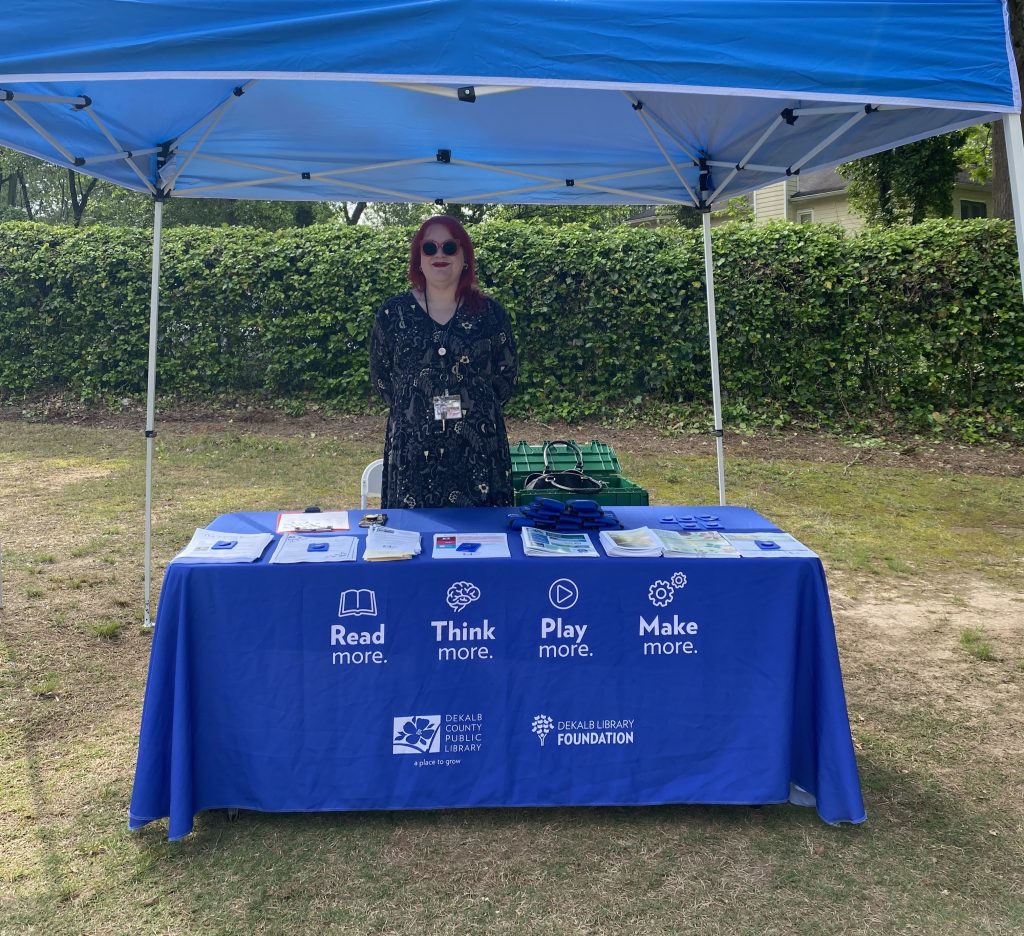
The Sue Kellogg library plays a primary role in cultivating a literate and economically strong DeKalb County, enhancing the quality of life for everyone in the community.
Sue Kellogg Public Library in Stone Mountain, GA, is conveniently situated behind Main Street and City Hall in the charming Stone Mountain village. The library offers a diverse collection including CDs, DVDs, books, and computer access for cardholders, with designated areas for children and parents.
Renovated and expanded, the light and airy library features a meeting room, comfortable browsing areas with upholstered chairs, and a children’s room with tables and chairs. Regular story hours for children make this community hub a welcoming and engaging space for all ages.
Council of American Indian Concerns
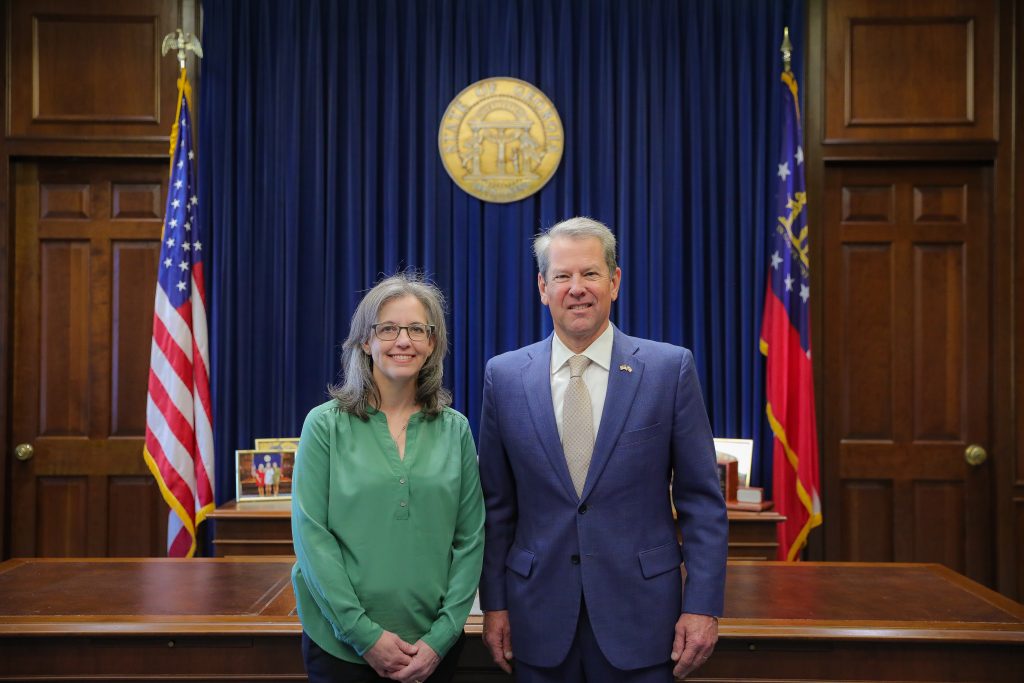
The Council on American Indian Concerns helps protect graves and burial objects from accidental and intentional desecration, advises state and local governments, and supports economic development within American Indian communities. Part of the Georgia Department of Natural Resources, State Parks and Historic Sites Division, the Council is the only state entity specifically authorized to address the concerns of Georgia’s American Indians.
The Georgia Council on American Indian Concerns was created by the Georgia General Assembly and is the only state entity specifically authorized to address the concerns of Georgia’s American Indians. It is tasked with fostering the cultural heritage of American Indians in Georgia, advising state and local government on issues affecting American Indians, and assisting with American Indian burial protection and repatriation.
The Council consists of nine Governor-appointed members, five of which are required to be American Indians, and also includes one physical anthropologist, one archaeologist, one other scientist and one at-large member.
We are honored to have NSA’s Director of Archaeology, Dr. Maureen Meyers, server as a member.
